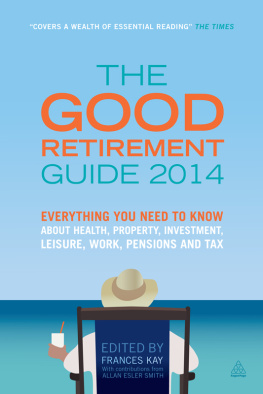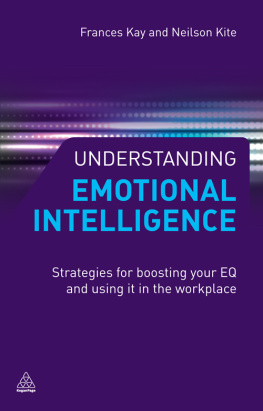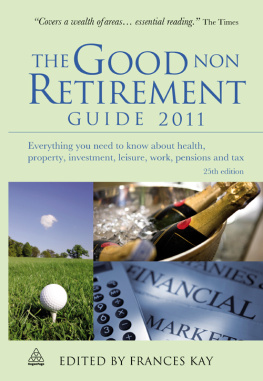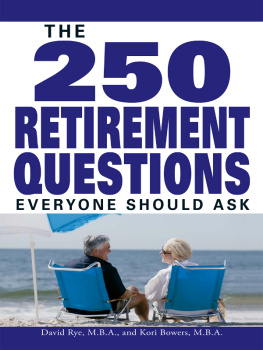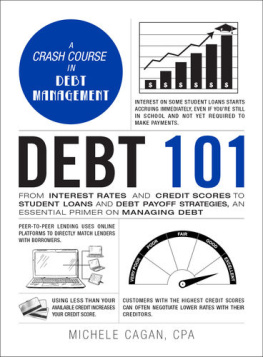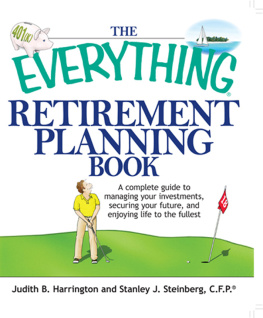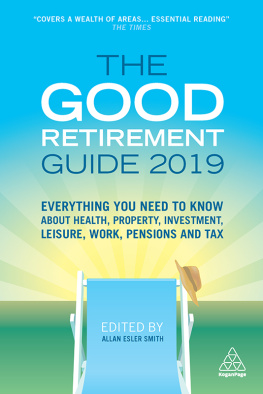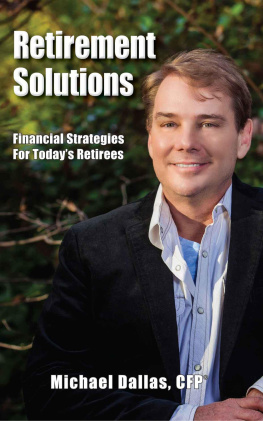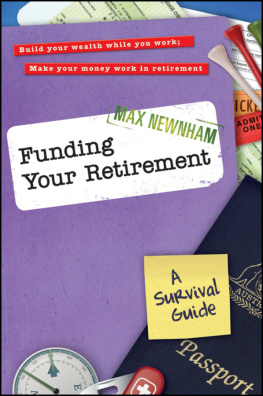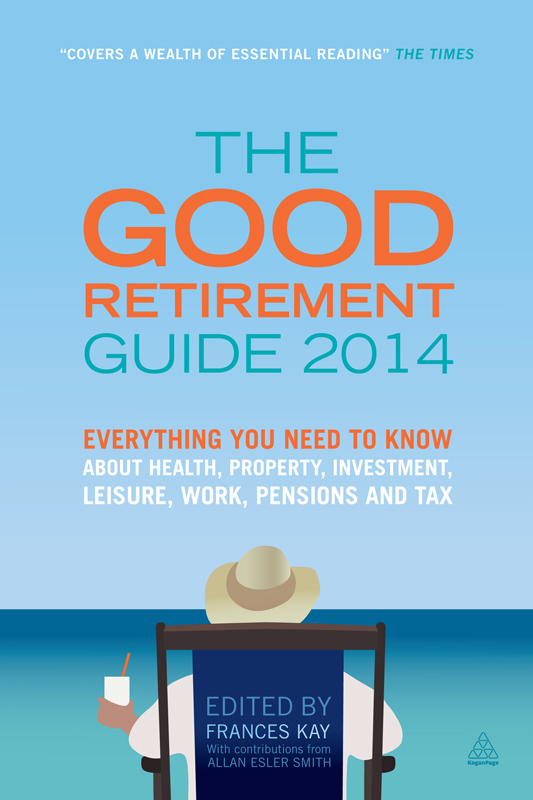

Note on the Ebook Edition For an optimal reading experience, please view largetables and figures in landscape mode. |
This ebook published in 2013 by
Kogan Page Limited
2nd Floor, 45 Gee Street
London EC1V 3RS
United Kingdom
www.koganpage.com
Kogan Page, 2013, 2014
E-ISBN 9780749470906
Contents
The trouble with retirement is that you never get a day off.
ABE LEMONS, COLLEGE BASKETBALL COACH
D id you know that retirement can be bad for your health? Apparently it carries a risk of depression and as a life-changing event can be more stressful than continuing to work. These are some of the findings of a report published last year by the London-based Institute of Economic Affairs: their think tank surveyed as many as 9,000 adults aged between 50 and 70 ( www.dailymail.co.uk/news/article-2325258 , dated 15 June 2013). Well, if youve just bought a copy of The Good Retirement Guide and were hoping to settle down to a nice encouraging read, you might now be thinking its better to carry on working
Of course it isnt true. Retirement is wonderful. It offers a wealth of opportunities we are denied while enduring our daily commute to work. Whether we are dreaming of spending time travelling, trying new hobbies or enjoying our hard-earned leisure with our nearest and dearest, its all down to sensible planning. For those with an optimistic tendency, as long as you prepare well for a good retirement you are actually likely to live longer ( www.bbc.co.uk/news/magazine-18952037 ). So how is your retirement planning coming along? If it needs a bit of help, welcome to the latest edition of The Good Retirement Guide : the book that contains everything you need to know about retirement. This years publication is the 28th edition and contains advice and suggestions on planning your future from finance, pensions, work, home and health, to leisure activities and holidays.
As the experts tell us that retirement for many can now last 30 years or longer, thats about a third of our life to enjoy after weve ceased working. So it makes a lot of sense to plan well for a good retirement. One of the new popular words that we frequently come across today is enrichment. Although it may sound like jargon, it means improving an experience, adding value, enhancing or uplifting something. There are lots of enrichment courses in schools, colleges and businesses; many organizations and agencies have adopted the word and offer enrichment programmes. Now its spreading fast to all areas of life and should certainly be applied to those who want a good retirement. If its going to last over a quarter of a century, a decent helping of enrichment could be just what we all need. Making the most of those retirement years is a matter of individual choice. Each persons circumstances and expectations will be different, and most of us will go through more than one life stage over this period. Such life stages could include:
- The active years where people have more leisure time and generally enjoy pretty good health, which means their income needs are relatively high.
- The slow down period as we age, our activity level diminishes and leisure time becomes more sedentary. Perhaps we will watch travel programmes on TV rather than going on expensive and adventurous holidays to exotic locations, thus reducing income needs.
- The later years as these arrive, age and health issues can catch up with us. This is when it may be necessary to obtain assistance to maintain quality of life and income needs might again increase.
Retirement is changing dramatically because of our increased life expectancy. Statistics reveal that as many as 11 million people living now will become centenarians: 3.3 million are aged 16 and under; 5.4 million are between 17 and 50; 1.4 million are 5165, and more than 900,000 are already over 65. The International Longevity Centre describe this as a huge societal success, but it comes at a price. Some experts even suggest that increased longevity will generate serious intergenerational tensions, where there is a clash of needs for resources between young and old.
To help cope with the pensions crisis, the most frequently proffered advice is to save more or continue working for longer. One outstanding example of the latter is a chap aged 101 who is still working for a security firm in Essex, having clocked up 86 years of full-time work, including torpedo construction during the Second World War ( www.guardian.co.uk/society/video/2013/feb/01/100-years-old-and-still-working-video ). Perhaps to continue working even after receiving the Queens telegram is a bit extreme, but its wise to consider all options when it comes to retirement planning.
Worklife balance is something that is important particularly if you want to consider part-retirement for those first active years. It is a popular solution for a number of people who dont want to give up work completely or a job they enjoy. Others prefer to have a total change and take full retirement so that they can spend their time in whatever way they want. Whatever you feel is right for you, do give the matter serious thought because retirement is a major lifestyle change.
Tips for retirement planning:
- Think about what standard of living you want; how much money you think youll need; and what sort of social life you wish to enjoy.
- If travel is important to you, make sure your budget allows for this.
- Sign up for a pre-retirement course.
- Work out your finances/pensions/investments with your professional adviser.
- Ask friends or former colleagues who have already retired for their best retirement suggestions.
- Consider where you live is moving house necessary or desirable?
- Resist the temptation once youve retired to commit yourself to too many new things too early wait six months to see how you feel.
- And, most important read your copy of The Good Retirement Guide !
This book is vital when planning to retire as it helps you make the most of what youve got. provides tips and suggestions on how to complain and protect yourself from scams.
, Voluntary work, has an abundance of suggestions you might like to consider.
Your health is the subject of deals with the final stage of life and suggests how to plan for this.
Retirement today is full of opportunity and choice. The 2014 Guide is thoroughly updated to reflect recent changes to tax, pensions and opportunities. Planning for retirement can be hard this book makes it easier.
Whatever age you are due to retire, taking advantage of a pre-retirement course will help you plan well for the next stage in your life. When would be the best time to attend such a course? One or two years before retirement, or earlier? Some people like to prepare for retirement in stages. It is important that some financial decisions, such as those affecting company or personal pension planning, are taken as early as possible. Others, like whether or not to move house, could wait till much later on.
Courses are designed to address the main subjects: finances, health, activity, leisure, housing and the implications and adjustments needed to be made when you retire. If your pre-retirement studies stimulate discussion with your partner and others in similar situations, it will have achieved its objective.
Listed below are some useful websites with loads of information and advice for those planning retirement:

